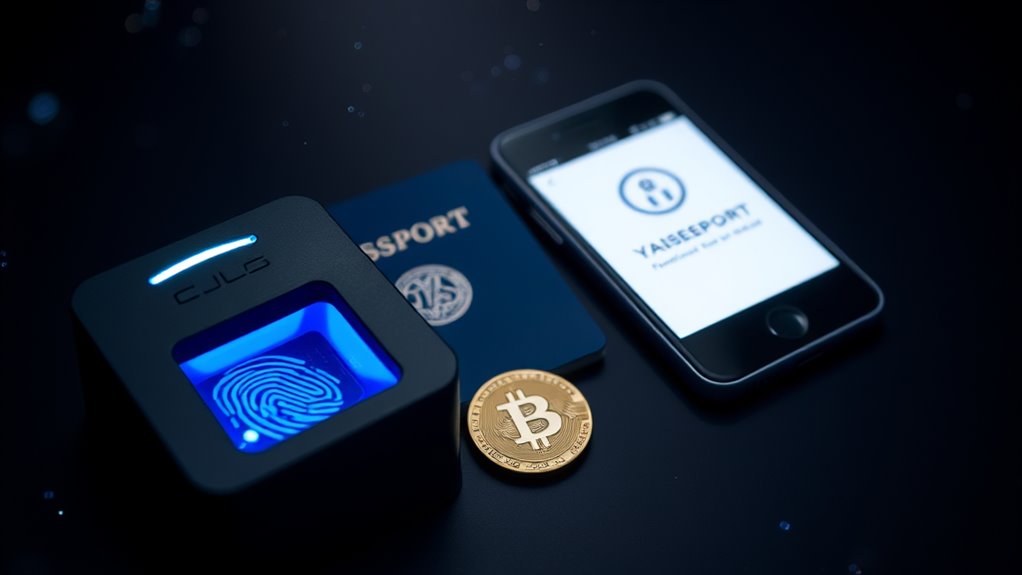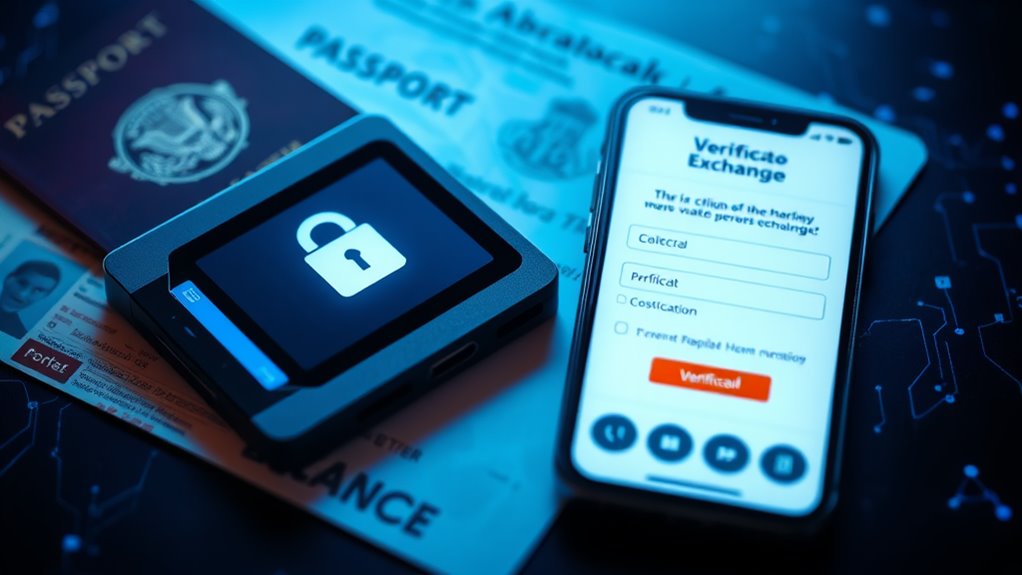Understanding Know Your Customer (KYC) in Cryptocurrency
Note: This post may contain affiliate links, and we may earn a commission (with No additional cost for you) if you purchase via our link. See our disclosure for more info. The gold and crypto world is constantly changing. This is not financial, investment, legal, or professional advice. So, please verify the information on the gold and cryptocurrency provider’s websites.
KYC, or Know Your Customer, is the annoying but necessary process that crypto exchanges use to verify who you are. They want your legal name, birthdate, address, and national ID number. Why? To combat fraud and money laundering, of course. With billions lost to scams, compliance is non-negotiable. Non-compliance? Think hefty fines and possibly shutting down. So, you'll need to hand over that data for a safer crypto experience. Curious what else KYC involves? There's more to it.

What on earth is KYC, and why is it such a big deal in the world of cryptocurrency? Well, KYC stands for “Know Your Customer,” and it's basically the financial world's way of asking, “Who are you?” It's a mandatory process for cryptocurrency exchanges, which are now seen as money service businesses (MSBs) under U.S. law. You can't just throw your cash at a digital coin and hope for the best. Nope, they want your legal name, birthdate, address, and national ID number. That's right. They're checking you out.
To verify all this juicy info, you'll need to whip out some government-issued documentation—think passports, driver's licenses, or national IDs. And guess what? Depending on where you live, the rules can change. Some countries are stricter than others, so be prepared for a wild ride. Some exchanges even use third-party services to make sure you're not a shady character. Robust KYC procedures are fundamental to identity verification and help reduce the risk of fraudulent activities in the crypto space.
But wait, there's more! KYC is not just a fun game. It's a legal obligation. Compliance with Anti-Money Laundering (AML) laws is serious business. If these exchanges don't toe the line, they face hefty penalties. We're talking fines and restrictions that could shut them down. They must register with FinCEN and keep records like they're the world's most boring detectives. KYC standards are essential for protecting against fraud, money laundering, and financial terrorism.
Now let's talk fraud. KYC is like a superhero in a digital cape, swooping in to save the day. It helps reduce money laundering, scams, and even terrorist financing. In 2023 alone, a staggering $2 billion was lost to scams and hacks. That's a lot of lost dreams. With KYC, suspicious activities get reported faster than you can say, “Wait, I didn't sign up for this.” KYC's significance is underscored by historical contexts, particularly linked to the closure of Liberty Reserve in 2013, where $6 billion was laundered, leading to major regulatory developments.
Frequently Asked Questions
How Does KYC Impact Cryptocurrency Transaction Speeds?
KYC can be a real speed bump in cryptocurrency transactions. Slow manual checks? Yeah, they can drag things down.
Some exchanges pause transactions until KYC is done—talk about frustrating! High-risk customers? They might wait even longer.
But automated solutions? They can boost speed. If everything clicks, KYC can actually help by keeping fraud at bay.
Just remember, it's all about balancing security and speed. Welcome to the chaotic world of crypto!
Are There Costs Associated With KYC Verification?
KYC verification isn't free—surprise! It starts at €0.60 per verification and can skyrocket with advanced options.
Companies are shelling out big bucks, especially when they get slapped with fines for slip-ups. Manual checks? Those cost a fortune in labor and can lead to mistakes.
Plus, ongoing monitoring adds to the bill. All this just to keep regulators happy. What a fun game of financial whack-a-mole!
Compliance: the pricey nightmare nobody asked for.
What Happens if I Fail KYC Verification?
If someone fails KYC verification, it's like hitting a brick wall.
No access to funds, no trading. Just a big, fat “nope.” Regulators will be watching, and that's never good. Legal troubles could follow, maybe even fines.
And guess what? Users will jump ship for platforms that actually verify. Trust? Gone.
It's a slippery slope. A failed KYC isn't just a hassle; it's a potential disaster waiting to happen.
Can I Use Multiple Exchanges Without KYC?
Sure, you can use multiple exchanges without KYC.
Some platforms practically roll out the red carpet for no-KYC trading. MEXC? Low fees, but good luck if you're in the US.
Bybit? They'll let you in with a mere $20. Easy peasy, right?
Just remember, it's like playing hide and seek. Fun until someone finds you.
Is My KYC Data Secure From Hackers?
KYC data security? It's a wild world out there.
Sure, they use fancy stuff like end-to-end encryption and zero-knowledge proofs. Sounds impressive, right? But hackers? They're crafty.
Despite secure storage and regular audits, nothing's foolproof. Think of it like locking your front door but leaving the window wide open.












